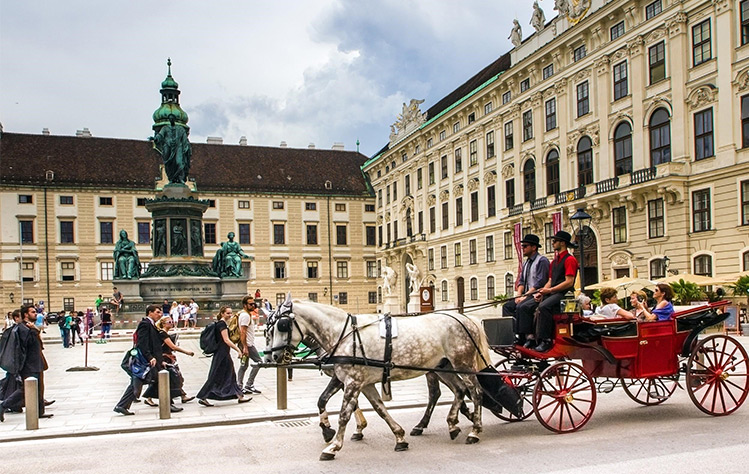4 Important Tips to Help You Integrate During Your Study in Vienna Adventure
November 03, 2021
![]() For any student planning on living and studying abroad for their university adventure,
there is inevitably an adjustment period. Known as one of the world’s most livable
cities, Vienna is an excellent place for anyone to study abroad. However, anyone moving
to Austria from another country can expect to encounter some cultural differences.
For any student planning on living and studying abroad for their university adventure,
there is inevitably an adjustment period. Known as one of the world’s most livable
cities, Vienna is an excellent place for anyone to study abroad. However, anyone moving
to Austria from another country can expect to encounter some cultural differences.
Luckily, there are several ways students at a school like Webster Vienna Private University can get used to life in Vienna, also known as the “City of Dreams.”
Here is some advice on how you can more easily acclimate yourself to life in this exciting Austrian city while you study abroad.
1. Learning Some German Will Help You More Easily Adapt to Austrian Life
Perhaps the most obvious way to start getting used to life in Vienna or any local culture is by learning the local language. You can achieve this during your study in Vienna opportunity by taking a German language course, either during your studies or before you arrive in Austria. Knowing even a little German will help you to get around Vienna more easily, and you’ll have many opportunities to practice your newly acquired language skills.
That being said, remember that certain words in Austria are distinctive from those in Germany. In Vienna, the local brand of German is known as “Wienerisch.”
For example, with the word tomato, “paradeiser” is used instead of “tomate.” Similarly, “erdäpfel” is the Austrian word for potato, as opposed to “kartoffel.” These are just a couple out of many examples, so be sure to have an understanding of these vocabulary differences as you learn the new language.
2. Understand What Frische Luft Is During Warmer, Sunnier Days
![]() Although it’s commonplace for people in many countries to have air conditioning units
installed in their homes, particularly in the United States, this is not the case
in German-speaking parts of Europe. In fact, most homes in Vienna likely don’t have
any sort of air conditioning, and windows are frequently opened instead. This is known
as “frische Luft,” which translates to “fresh air.”
Although it’s commonplace for people in many countries to have air conditioning units
installed in their homes, particularly in the United States, this is not the case
in German-speaking parts of Europe. In fact, most homes in Vienna likely don’t have
any sort of air conditioning, and windows are frequently opened instead. This is known
as “frische Luft,” which translates to “fresh air.”
As people in Austria and Germany tend to find issues with the purity of the air coming from A/C units, windows are left open instead as a way to allow fresh air to come in to keep living spaces cool and airy.
3. Those About to Study in Vienna Should Look for Wohnungs
A Wohnung is the German word for “apartment,” and it’s worth keeping this tip in mind before you leave to study in Europe. This is because finding an apartment for rent can be tricky in Vienna, as so much of the city’s real estate consists of state housing. Furthermore, it is more common for people to share apartments in Vienna, so you may be more likely to have roommates there instead of living alone.
4. Remember to Watch Your Budget

While Vienna isn’t as expensive as some other well-known European cities such as London, it is still considered “above average” as far as cost of living is concerned. With this in mind, try buying food in supermarkets rather than eating out, and remember that items can be more expensive when sold in areas that regularly attract tourists.
If you’re arriving in the city with a stricter budget to adhere to, we suggest taking public transport whenever possible. Buying a Vienna PASS is also a great money saver for visiting the city’s various attractions you’re bound to want to explore. This special pass grants you free access to many of the city’s biggest and most famous attractions, and is available to both tourists and students.
Want the opportunity to study in Austria?
Contact Webster Vienna Private University for more information.
